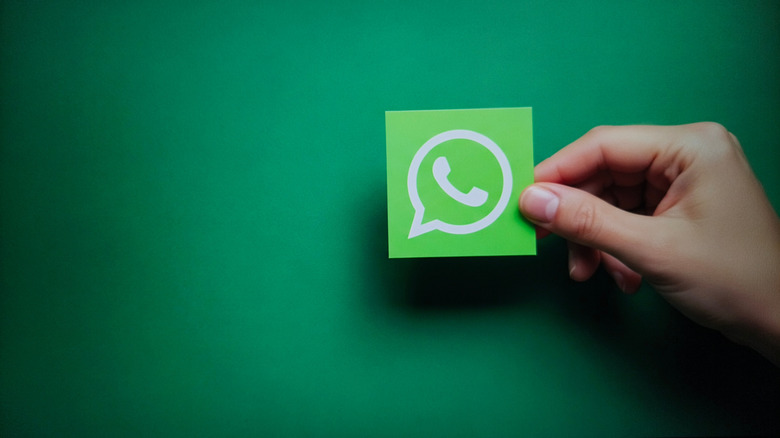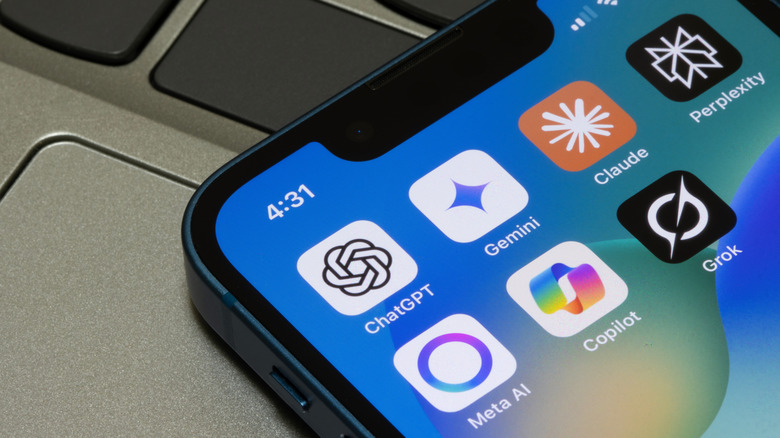Meta Wants AIs Like ChatGPT Gone From Your WhatsApp Chats
ChatGPT, Perplexity, and other AI apps are available in WhatsApp via direct messaging, an unexpected way of reaching the massive WhatsApp user base. WhatsApp already features built-in Meta AI functionality, which gets prime placement in the user interface. All of Meta's social networks come with Meta AI preloaded, whether the user wants to use the AI or not. Come January 15, 2026, Meta AI should be the only chatbot option in WhatsApp. According to TechCrunch, the Meta subsidiary changed its Business API policy last week to ban other chatbots from its platforms, including ChatGPT, Perplexity, Luzia, Poke, and other AI firms that might use WhatsApp's infrastructure to offer communications to their assistants.
Meta confirmed to TechCrunch that the change won't impact apps that use the WhatsApp API to provide customer service where an AI might chat with users. The following section in WhatsApp's Business API terms explains that Meta will ban general-purpose chatbots:
"Providers and developers of artificial intelligence or machine learning technologies, including but not limited to large language models, generative artificial intelligence platforms, general-purpose artificial intelligence assistants, or similar technologies as determined by Meta in its sole discretion ("AI Providers"), are strictly prohibited from accessing or using the WhatsApp Business Solution, whether directly or indirectly, for the purposes of providing, delivering, offering, selling, or otherwise making available such technologies when such technologies are the primary (rather than incidental or ancillary) functionality being made available for use, as determined by Meta in its sole discretion."
What can ChatGPT do in WhatsApp?
OpenAI surprised users last December when it unveiled a ChatGPT phone number that would allow WhatsApp users to interact with the chatbot via messages. ChatGPT is available as a standalone app on iPhone and Android. Also, ChatGPT is integrated into Apple Intelligence in certain iPhone, iPad, and Mac models. But some people might like talking to the chatbot via WhatsApp. Since December, OpenAI has improved the ChatGPT experience in WhatsApp. In February, it added support for voice messages and image uploads. In June, OpenAI brought support for ChatGPT image generation to WhatsApp. Perplexity made the Perplexity AI available in WhatsApp in April.
TechCrunch points out that Meta was surprised by these use cases, which were not covered by the current Business API in WhatsApp. AI chatbots in WhatsApp placed an extra burden on the system, with Meta seeing an increased message volume and need for a different kind of support. Importantly, Meta could not charge AI firms for using the Business API to connect users to their chatbots. The Business API is one way Meta is monetizing WhatsApp, charging companies for the way they use the chat app to provide customer service.
WhatsApp has more than 3 billion monthly users, but Meta can't effectively use it to serve personalized ads. The chat app is end-to-end encrypted, so Meta can't place ads within chats. But business messaging is a key priority for Meta in apps like WhatsApp, according to Mark Zuckerberg's comments from earlier this year, as it could bring in more revenue. That said, it's unlikely Meta would allow competing AI services on its social platform, even if they were willing to pay for Business API usage. Having chatbots like ChatGPT available in WhatsApp is a direct threat to Meta AI.

